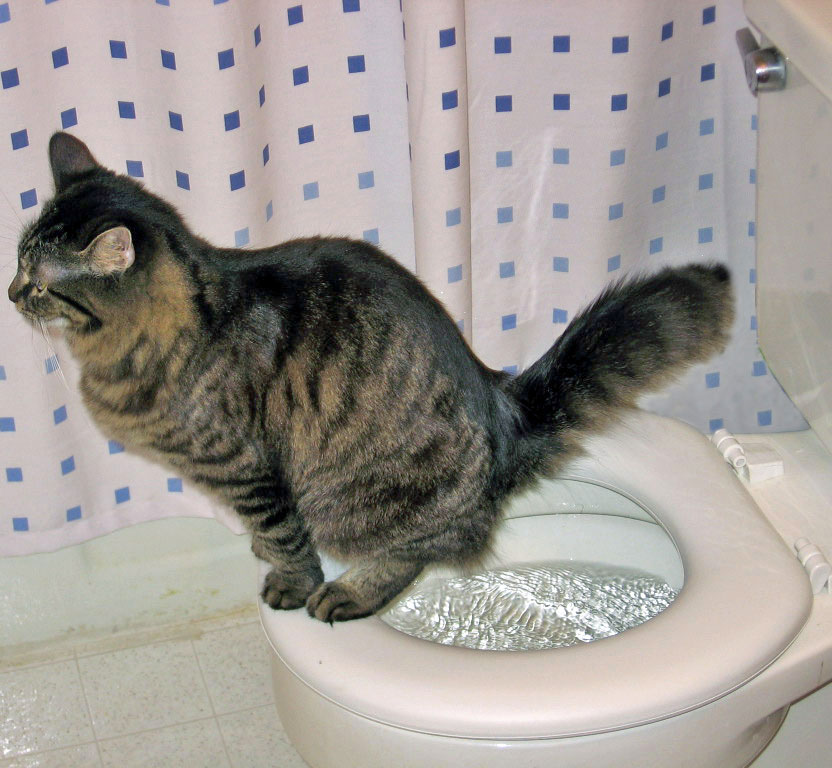Why You Should Never Flush Cat Poop Down Your Toilet - Crucial Facts
Why You Should Never Flush Cat Poop Down Your Toilet - Crucial Facts
Blog Article
What're your ideas about Can You Flush Cat Poo or Litter Down the Toilet??

Intro
As feline owners, it's vital to bear in mind how we take care of our feline close friends' waste. While it might seem convenient to flush feline poop down the commode, this practice can have destructive repercussions for both the setting and human wellness.
Alternatives to Flushing
Luckily, there are more secure and much more accountable methods to deal with cat poop. Think about the adhering to alternatives:
1. Scoop and Dispose in Trash
One of the most typical approach of throwing away feline poop is to scoop it into a biodegradable bag and throw it in the garbage. Make sure to make use of a specialized trash inside story and deal with the waste without delay.
2. Use Biodegradable Litter
Select eco-friendly feline litter made from products such as corn or wheat. These trashes are eco-friendly and can be securely dealt with in the trash.
3. Hide in the Yard
If you have a backyard, consider hiding pet cat waste in an assigned area away from veggie yards and water sources. Be sure to dig deep sufficient to avoid contamination of groundwater.
4. Set Up a Pet Waste Disposal System
Purchase a family pet waste disposal system specifically developed for cat waste. These systems use enzymes to break down the waste, reducing odor and ecological influence.
Wellness Risks
Along with ecological issues, flushing cat waste can also pose wellness dangers to humans. Cat feces may have Toxoplasma gondii, a parasite that can cause toxoplasmosis-- a potentially severe illness, particularly for expectant females and people with damaged immune systems.
Ecological Impact
Purging cat poop introduces unsafe virus and parasites right into the water, presenting a significant risk to aquatic environments. These impurities can negatively influence marine life and compromise water top quality.
Conclusion
Responsible family pet ownership expands beyond providing food and shelter-- it also involves proper waste management. By refraining from flushing pet cat poop down the bathroom and opting for alternative disposal approaches, we can lessen our ecological impact and shield human wellness.
Why Can’t I Flush Cat Poop?
It Spreads a Parasite
Cats are frequently infected with a parasite called toxoplasma gondii. The parasite causes an infection called toxoplasmosis. It is usually harmless to cats. The parasite only uses cat poop as a host for its eggs. Otherwise, the cat’s immune system usually keeps the infection at low enough levels to maintain its own health. But it does not stop the develop of eggs. These eggs are tiny and surprisingly tough. They may survive for a year before they begin to grow. But that’s the problem.
Our wastewater system is not designed to deal with toxoplasmosis eggs. Instead, most eggs will flush from your toilet into sewers and wastewater management plants. After the sewage is treated for many other harmful things in it, it is typically released into local rivers, lakes, or oceans. Here, the toxoplasmosis eggs can find new hosts, including starfish, crabs, otters, and many other wildlife. For many, this is a significant risk to their health. Toxoplasmosis can also end up infecting water sources that are important for agriculture, which means our deer, pigs, and sheep can get infected too.
Is There Risk to Humans?
There can be a risk to human life from flushing cat poop down the toilet. If you do so, the parasites from your cat’s poop can end up in shellfish, game animals, or livestock. If this meat is then served raw or undercooked, the people who eat it can get sick.
In fact, according to the CDC, 40 million people in the United States are infected with toxoplasma gondii. They get it from exposure to infected seafood, or from some kind of cat poop contamination, like drinking from a stream that is contaminated or touching anything that has come into contact with cat poop. That includes just cleaning a cat litter box.
Most people who get infected with these parasites will not develop any symptoms. However, for pregnant women or for those with compromised immune systems, the parasite can cause severe health problems.
How to Handle Cat Poop
The best way to handle cat poop is actually to clean the box more often. The eggs that the parasite sheds will not become active until one to five days after the cat poops. That means that if you clean daily, you’re much less likely to come into direct contact with infectious eggs.
That said, always dispose of cat poop in the garbage and not down the toilet. Wash your hands before and after you clean the litter box, and bring the bag of poop right outside to your garbage bins.
https://trenchlesssolutionsusa.com/why-cant-i-flush-cat-poop/

As an enthusiastic reader about How to Dispose of Cat Poop and Litter Without Plastic Bags, I imagined sharing that excerpt was a great idea. Sharing is good. One never knows, you may just be helping someone out. Thanks a bunch for your time. Come back soon.
Visit My Web Page Report this page